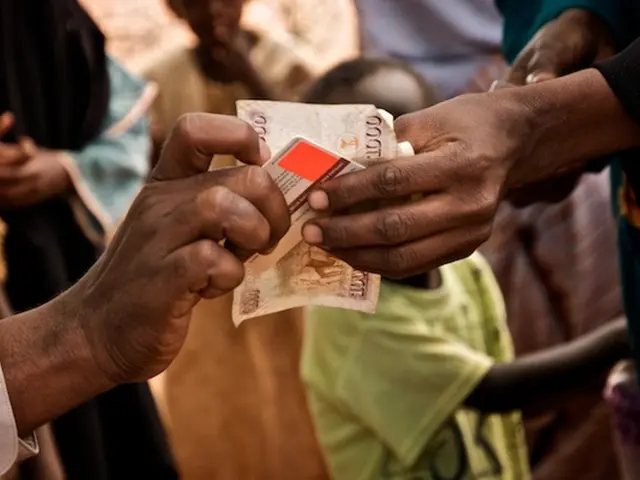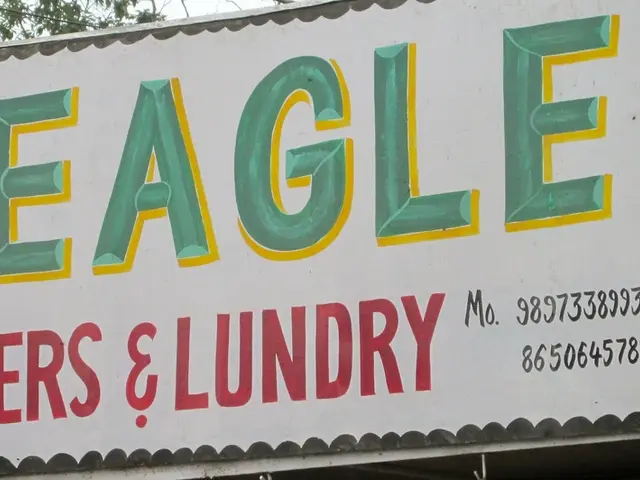Dodgy Deals: Why DealDash Isn't What It Seems
Non-Auction Platform DealDash Operates Like a Casino
In between my home office and the kitchen TV, I catch a glimpse of commercials that wouldn't make the cut during primetime. Among them, the constant barrage of DealDash ads. This "auction" site claims to offer a chance to win big-ticket items for pennies on the dollar. A PlayStation 5 for 50 cents? An iPad Pro for $42? It's too good to be true, and it is.
While it's possible to score deals on DealDash, the reality is far from what they promise. It's not a scam, per se, but it certainly feels like a rigged game – more akin to gambling than an actual auction.
The Catch
The site lists a variety of items for bids, from gift cards and electronics to home goods. Each bid increases the price by one cent, and the last bidder standing gets the item for a suspiciously low price.
But it's not all sunshine and roses – every bid costs money. The base price is $0.20, but the site is currently advertising a sale of $0.12 per bid. Bids are sold in packs, and you gotta buy 'em to bid on anything.
Win a $100 gift card for $20, and you might think you're onto a good thing. But if you've bid 100 times to get it, you've spent an extra $32 – that's a loss, not a win. And if you don't win the auction, you lose the cost of all your bids. That's how DealDash rakes in the dough.
Fate of the (Un)Lucky Gambler
So, why is DealDash a gamble? Simply put, you don't know if or when you'll win an auction, and you're risking money to try. You don't know when the auction will end, and you can't predict when to stop bidding, aside from doing the math and setting a dollar limit for yourself. But even the most responsible bidder can end up losing money if they don't win.
It's like a slot machine. You keep feeding it quarters, hoping that the next spin lands you the big jackpot. You might get lucky and come out ahead, but most of the time, you'll walk away with less – or worse, no money at all. Except, with DealDash, it's not quarters – it's your hard-earned cash.
And the catch-22 doesn't end there. The uncertainty of when auctions will end, and the cost of bids, makes DealDash extremely predatory. The site's target market is people who are home during the day – homemakers, the unemployed, seniors, the sick, and the injured. They stand to gain the most from the alleged opportunity to win expensive items for pennies. But it's also the same group that often has the least to spare.
All too often, people get caught up in the heat of the moment, unwilling to walk away from their bids because they've already invested so much. It's a perfect example of the sunk cost fallacy – continuing on a path because of past investment, even when it's wiser to cut your losses and move on.
DealDash lets users recoup their bids if they win and buy the item at the "Buy It Now" price, but that's a rip-off too. The "Buy It Now" price is often significantly more than the item's worth, taking advantage of people who refuse to walk away from the table.
At its core, DealDash is gambling, plain and simple – and it's almost criminal that it's not regulated as such.
[1] Overall, while DealDash is marketed as an auction site, its model aligns more closely with gambling due to the financial risks and uncertainties involved. Users must pay to participate in each bid, there is inherent risk and uncertainty in winning, and the unpredictable nature of the auctions can lead to financial loss.
- Despite its marketing as an auction site, DealDash shares similarities with casino-and-gambling, as users pay for each bid, face uncertainties in winning, and may suffer financial losses due to the unpredictability of the auctions.
- The financial risks and uncertainties encountered on DealDash not only make it resemble casino-games but also suggest that it may be more appropriate to regulate it as a form of gambling, given its close affinity to casino-style gaming.





